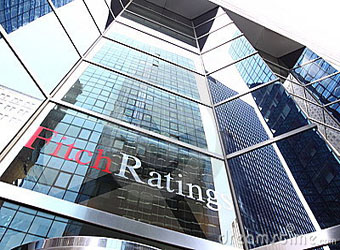Fitch said that Egypt has achieved “significant progress” with its economic reform programme.
“Fiscal consolidation is proceeding, although it will require a multi-year effort to reverse the increase in general government debt/GDP witnessed since the Arab Spring uprisings,” Fitch Ratings said.
The agency forecasts government debt/GDP to fall to 93 percent in fiscal year 2017/18 from a peak of 103 percent in fiscal year 2016/17, and to 88 percent by the end of fiscal year 2018/19.
“The key risk to this outlook is that reform momentum weakens,” reads the press release.
Fitch Ratings expects the budget deficit to narrow further in fiscal year 2017/18 to 9.7 percent, and forecasts a primary surplus in fiscal year 2018/19 for the first time in over 15 years.
The agency also forecasts a GDP growth of 4.8 percent in fiscal year 2017/18, on the back of exchange rate adjustment and the increase in gas production.
“Relatively weak governance together with security and political risks continue to weigh on the rating,” the agency noted.
“Nevertheless, fiscal and monetary reforms have so far not prompted a visible social backlash. The government has sought to mitigate this risk by bolstering social safety nets (including cash transfer schemes),” the agency added.
The agency noted that high inflation will remain a rating weakness, but recognised that the inflationary spike that followed the EGP float and the fiscal reforms “is starting to subside.”
Fitch stated that the effect of continued fiscal consolidation progress on government debt/GDP, sustaining stronger economic growth, and maintaining a high level of international reserves are factors that could lead to an upgrade in Fitch’s credit rating.
As for factors that could lead to a negative rating, these include failure to narrow the fiscal deficit and decrease government debt/GDP, the reversal of reforms, and pressure on international reserves that could be induced by the balance of payments.
Fitch Ratings is one of the three biggest international credit rating agencies, along with Moody’s and Standard and Poor’s.
Credit rating calculates if a borrower is likely to pay back a loan without defaulting.
Investors use ratings by such agencies as indications on where their investments would yield a return. Source: Ahram online
Source: Ahram online


